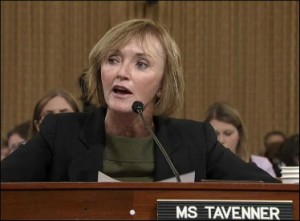Stephan: The Greek crisis is far from over, and is really just part of a Europe wide process auguring societal instability. There is going to be a fearsome price to be paid for following the disastrous policies of Austerity Economics. The bill is not in yet however. Paul Krugman and Joseph Stiglitz are right.
“When impatience becomes not an individual but a social experience of feeling, this is the introduction for revolutions” said Tusk.
“I am really afraid of this ideological or political contagion.”
His unease reflects a widespread conviction that Europe’s elites had no choice but to make an example out of Greece.
Alexis Tsipras was forced to submit to a deal that punished his government’s […]
No Comments
Catherine Arnold, - Nature World News
Stephan: Here is the latest neonicotinoid outrage in the Agricultural Poison Trend. That this toxin is still on the market given the importance of bees to human welfare is a measure of the power corporate profit has over social wellbeing.
Pesticides are in most pollen and honey samples collected from foraging bees in Massachusetts, researchers from Harvard T.H. Chan School of Public Health said recently in a paper published in the Journal of Environmental Chemistry.
That is, more than 70 percent of the samples contained at least one neonicotinoid, a class of pesticides that has been implicated in Colony Collapse Disorder (CCD). In CCD, adult bees abandon their hives during winter.
“Data from this study clearly demonstrated the ubiquity of neonicotinoids in pollen and honey samples that bees are exposed to during the seasons when they are actively foraging across Massachusetts. Levels of neonicotinoids that we found in this study fall into ranges that could lead to detrimental health effects in bees, including CCD,” said Chensheng (Alex) Lu, an associate professor at Harvard Chan School and lead author of the study, in a release.
The significant losses of honey bee colonies since 2006 have scientists, policymakers, and others concerned because bees pollinate roughly one-third of crops worldwide.
Researchers analyzed pollen samples collected over time, during spring and summer when bees are busy foraging, from the same set of hives across the state of Massachusetts. In this way, scientists […]
2 Comments
Saturday, July 25th, 2015
Niall McCarthy, Data Journalist - Forbes
Stephan: Norway, which consistently ranks amongst the happiest countries in the world, as well as one of the healthiest, most stable, offering free university education, universal healthcare, upward mobility, and on and on, leads the world now in adopting ev vehicles.
 Norway is leading the world’s electric vehicle market, having registered its 50,000th electric car in April of this year. In the first quarter of 2015, 8,112 plug-in electric and plug-in hybrid electric vehicles were sold in Norway, accounting for a third of the country’s total vehicle registrations, according to IHS Automotive.
Norway is leading the world’s electric vehicle market, having registered its 50,000th electric car in April of this year. In the first quarter of 2015, 8,112 plug-in electric and plug-in hybrid electric vehicles were sold in Norway, accounting for a third of the country’s total vehicle registrations, according to IHS Automotive.
Compared to other countries, that is quite an achievement. The Netherlands sold 5,760 electric vehicles in Q1, and these accounted for a 5.7 percent share of all registrations, some distance behind Norway’s 33.1 percent. In the United States and France, electric cars had a 0.8 percent share of registrations.
For Norway, the positive sales are actually turning out to be a little bit too positive. The government has offered a number of tax cuts and benefits as an incentive, including exemptions from tolls and parking fees in some cases. However, the subsidy-driven sales boom has actually created a tax shortfall of 2 billion crowns ($267.79 million), according to Reuters.
Norway is now reviewing its policy of tax breaks for electric car buyers amid the shortfall in state revenue, though the […]
No Comments














